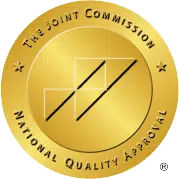Partial Hospitalization Program (PHP) for Addiction Treatment In Mississippi
In 2021, 40.3 million people in the United States had a substance use disorder, and only 6.5% of them received any kind of treatment. There are many reasons for this, but one significant problem is that not everyone can take time off from their responsibilities to begin inpatient treatment, and not everyone can pay for this option.
Traditional outpatient services may not provide the high level of care needed, either, making it tough for a large group of people with substance use disorders to get the exact type of care they need. Partial hospitalization programs (PHPs) offer the solution.
What Is a Partial Hospitalization Program?
Partial hospitalization programs, also called day treatment, offer the structured care you need with shorter requirement that you stay at the facility overnight vs typical inpatient treatment. PHPs provide a level of care that bridges the gap between inpatient and outpatient treatment, offering hours of assistance each day on most days of the week.
Typically, PHPs offer at least six hours of treatment a day, though it’s possible to receive more. This highly structured schedule provides an intensive level of support that can be essential for those who are moving down from inpatient treatment or who can’t participate in inpatient care but still require very hands-on programs.
Like inpatient treatment, PHPs provide numerous services, including:
- Medication management
- Individual therapy sessions
- Family therapy sessions
- Group therapy sessions
- Mental health assessments
- Dual-diagnosis treatment
- Aftercare planning
- Relapse prevention

Benefits

Provides High-Intensity Treatment
PHPs offer a significantly higher level of care than traditional outpatient addiction treatment. This is essential for those starting their recovery or people who worry about the transition between inpatient and standard outpatient programs.
Each week, you spend hours in treatment and participate in individual and group therapy sessions to address the underlying cause of your substance use disorder. This high intensity makes it easier to gain a footing on your recovery.

Offers a Less Restrictive Setting
You don’t stay overnight at the facility when you choose partial hospitalization programs. This is essential if you have family or work responsibilities you can’t set aside.
You can return home each night and keep your privacy. If you decide to participate in inpatient treatment, for example, you might have to let your employer know why you’ll be out for a period of time. This may not be something you’re ready to do and could keep you from getting assistance in the first place.

Allows for Immediate Application of Skills
Removing yourself fully from your routine can make it difficult to transition out of inpatient treatment. The skills you learn in a PHP can help you tackle all of the daily stresses you may encounter when you return home. During your therapy sessions, you can address the various challenges you face in your everyday life.

Provides an Affordable Option
Inpatient care may not be an option for everyone. Staying at a facility can be expensive, and you’ll also need to take time off from work. That is not feasible for many. PHPs are less expensive and don’t really require that you take time off unless you want to.

Allows You to Build a Large Support System
When you enter inpatient care, your support system is made up of the therapeutic medical staff who are offering guidance as well as other people who are getting treatment at the same time as you. If you participate in PHPs, you have your loved ones’ added support.

Helps You Build Confidence and Stability
Being able to put what you learn in your therapy sessions into actual practice can provide the confidence boost you need. You can use techniques for emotional regulation as well as communication strategies to help you address relationship issues in your daily life.

Assists With Aftercare
Once you complete your treatment, you need to have a clear idea of what your options are and how to avoid relapsing. Aftercare planning helps you with all of this, and all PHPs have sessions where you can address the worries you may have about what your next steps should be.
How Does PHP Treatment Tie Into Inpatient and Outpatient Treatment?
PHP is less intensive than inpatient treatment. It can be an option that works well for those who have already completed residential treatment and would like to maintain a higher level of care that outpatient treatment offers.
A partial hospitalization program can also be an option if you have completed other programs and relapsed. You may not need the level of care of inpatient services if you can remain safe and get back on the road to recovery with the assistance of a PHP.
These programs also make it easier for you to move transfer to standard outpatient treatment. PHPs teach you how to participate in your daily life while still maintaining your sobriety, so the transition to a more standard outpatient program is less stressful.
Is Detox Required After PHP?
No. Most PHP programs, like at The Estate At River Bend, may have other programs with detox service included if it’s needed.
Most of the time, people who choose to participate in PHPs don’t need detox services or have already completed them. The Estate provides detoxification services onsite with experienced medical professionals who provide evidence-based treatment methods for a safe detox process.
Please call our customer service staff 24/7 to see if detox is recommended for your treatment.

Who Is Ideal for a PHP?
Not everyone can benefit from a PHP, so it’s essential to understand whether it’s a good fit for you. The first thing to think about is whether your home environment can help you remain sober.
If you have easy access to drugs or alcohol, or if your partner or housemate has an active addiction and they’re not receiving help, then that’s not the best environment for your recovery. The same thing applies if your home is turbulent and you experience abuse or other triggers that could lead you to rely on substances again.
If any of those scenarios fit your circumstances, then a PHP may not fully address what you’re struggling with. You may need inpatient treatment to remove yourself from your home situation.
Those who can benefit the most from a PHP are people who have a safe home environment and supportive loved ones who can help them through a crisis. It’s also a good choice for those with a steady job they can’t step away from.
People transitioning from inpatient care can greatly benefit from this treatment option. It’s a continuation of the work they have already done, providing the support they need to gradually reintegrate into their lives.
The Estate’s PHP program can also be a great option if you have mental health disorders that co-occur with substance use disorder. People who have co-occurring conditions typically need a higher level of care because both concerns need to be treated at the same time. Standard outpatient care is typically not enough unless they have completed a previous program that prepared them with the necessary skills.
If you take medications for mental or physical health issues, PHPs offer medication management services. Your care team will ensure that you receive the drugs you need, removing one worry from your life.

Does Insurance Cover PHP Treatment?
Most major insurance companies cover addiction treatment, including partial hospitalization programs. This would be covered under your mental health benefits. Make sure to check that your individual plan covers it, or call our 24/7 customer service team and we will help you verify your plan.
Some insurance companies require medical authorization before you can receive PHP care. Ask your doctor about this, and ensure that you double-check all of the requirements with your coverage plan.
PHPs can be in or out-of-network. It’s vital to understand if your health insurance plan works with the center you’ve been considering
Please call us at to learn more about your insurance plan. We are here to help.
The Next Steps After PHP
Once you complete a PHP, you have options as to what programs you’d like to transition down to. Some people opt for intensive outpatient programs (IOPs). IOPs are a bit more relaxed than PHPs but not quite as free as standard outpatient services. They can be a good option if you are still not fully secure in your recovery.
IOPs offer fewer hours of treatment a day and allow you more freedom to adjust to your daily life. This slow increase in your independence can be an effective way of building your confidence in your own sobriety.
For others, standard outpatient services can be the right step after PHP. Standard outpatient services offer the most freedom while still providing individual and group therapy sessions you can depend on.
Each person is different, so their journey through recovery can also vary. Your care team will work closely with you to find the path that can help you achieve long-term sobriety.
Finding Your Sobriety
If you have been living with a substance use disorder, you know how much it can impact all aspects of your life. You might have lost promotions and job opportunities, and might even have been terminated because of the addiction, and your personal life has probably taken a hit, too.
Whether you’ve tried to get sober and relapsed or haven’t made the attempt yet, one of the options to consider is participating in a partial hospitalization program. These can cater to your exact needs without requiring that you step completely out of your life and away from your responsibilities.
You don’t have to struggle through all of this on your own. With the right care team beside you, finding your sobriety once more is possible.
Contact Us Now
228-231-9308Since we opened our doors, our innovative residential drug and alcohol rehab programs have been making healing and hope possible.
For more information or immediate confidential help, please call us anytime, 24 hours a day, 7 days a week.



